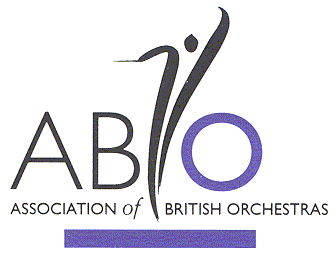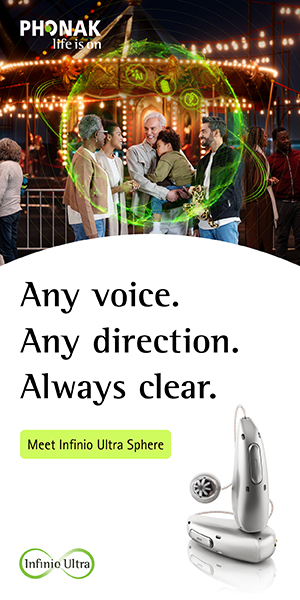
A SOUND EAR
A ONE-DAY SEMINAR FOR MUSIC INDUSTRY PROFESSIONALS
TACKLING THE ISSUES OF NOISE DAMAGE IN ORCHESTRAS
TUESDAY 3 SEPTEMBER 2002
CHELSFIELD ROOM, ROYAL FESTIVAL HALL, LONDON, 10:00AM-4.30PM
Commissioned by the ABO and written by health and safety specialist Alison Wright Reid, A Sound Ear has proved to be a popular, highly readable and thought-provoking report on the potential for hearing damage to orchestral musicians. Since its launch in August 2001, A Sound Ear has received unprecedented levels of interest from the international orchestral and wider music communities to the mainstream media across the UK and EU, prompting the ABO to present this informative one-day seminar for music industry professionals to look at the next step in tackling the issues raised by the report.
Discussions will include:
A review of current and proposed UK and EU noise legislation
Compliance and the implications such legislation could have on the music industry.
An insight into the ABO's unique model for "Noise Teams" and player training in orchestras
Make effective changes in the workplace, on the concert platform or in the pit.
Speakers and panel members will include representatives from the Royal Scottish National Orchestra, the Orchestra of the Royal Opera House, BBC Symphony Orchestra, Royal College of Music, Pearle* (Performing Arts Employers Associations League Europe), Health and Safety Executive, Musicians' Union and the author of the report herself. With ample time for debate and discussion from the floor throughout the day, this promises to be a highly informative and stimulating seminar. The event begins at 10.00am (with coffee available from 09:30am) and will end around 4.30pm.
In advance of the seminar, report author Alison Wright Reid said: "As orchestras struggle to reduce player noise risks without audiences noticing, Europe continues work on more stringent noise laws. The European Parliament, Council and Commission disagree over details of the new directive and are now in conciliation. This seminar coincides with their first formal trilogue, but there is no poetic symmetry - while we explore the implications of an 80% cut in noise limits, they have deferred discussion of special measures for the music and entertainment industry."
This seminar will be invaluable to anyone working in - or with an interest in - the orchestral field and wider music sector, where the potential for noise damage to musicians may exist. The day costs only £25+VAT for ABO members and £40+VAT for non-members including light refreshments. Trade exhibition opportunities also exist.
MORE INFORMATION
To register for free press attendance at the event or to receive a booking form please contact Adam Powell ABO Projects Manager, by 'phone on 020 7261 1555, fax to 020 7261 1155 or by e-mail at [email protected]
NOTES TO EDITORS
ABOUT THE AUTHOR
Alison Wright Reid is a freelance consultant, qualified in occupational hygiene, acoustics, health and safety, and management. She has worked in the field of health and safety for over 20 years, and became involved with orchestral noise risks in the early 90s, while working for the BBC.
WHAT IS THE ABO?
The Association of British Orchestras exists to support and develop the collective interests of professional orchestras throughout the UK working to create an environment in which they can flourish artistically and financially. The ABO's membership include all major UK symphony orchestras and a wide range of chamber orchestras, specialist ensembles, opera companies, national youth orchestras, conservatoires and other music organisations such as venues and agents. Our activities include conferences and seminars, research, publications, training and general advocacy for the orchestral life of the UK. For further information about the ABO please visit our website at www.abo.org.uk
FOREWORD TO THE REPORT
by Former ABO Director, Libby MacNamara
Musicians who have dedicated their lives to playing in orchestras surely do so first and foremost because they love their art form, and want to produce performances of the highest quality for the delight of their audience. Without doubt one of the most exhilarating experiences for us, the audience, is to hear a large, modern symphony orchestra - perhaps a hundred musicians or more - playing exciting repertoire with all the variety and colours of sounds this great ensemble can produce. In the excitement of the moment, the last thing we might think about is the physical volume level of what is going on, and the fact that it might be harmful to the very people who are generating the sound, the musicians themselves.
The Association of British Orchestras has taken a keen interest in this issue for some time, but one of the problems has been the wide variety of informed (but often conflicting) opinion on the subject, making it difficult to seek effective solutions. This report was commissioned in order to try and find a balance of opinion, drawing on all existing accessible research, both published and unpublished. We are grateful to Alison Wright Reid for this resulting document which, although comprehensive and authoritative, is also clear, succinct and easy to read.
There can no longer be any doubt that this is a serious matter. It seems unimaginable that the hearing of musicians might be at risk, when you consider the importance of excellent hearing to the very business of making music. We should make it a priority to discover as much as we can about the subject, and then work together to find ways to reduce the risks, without compromising the breadth of sound that the large-scale orchestra exists to produce. If we want to keep orchestral music live, we must take the problem seriously and work together to find solutions.

